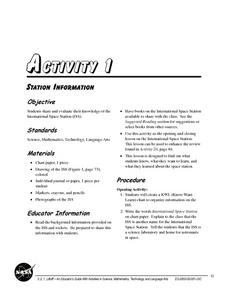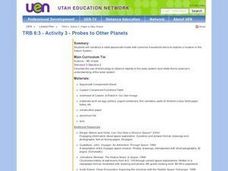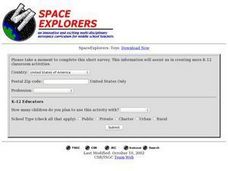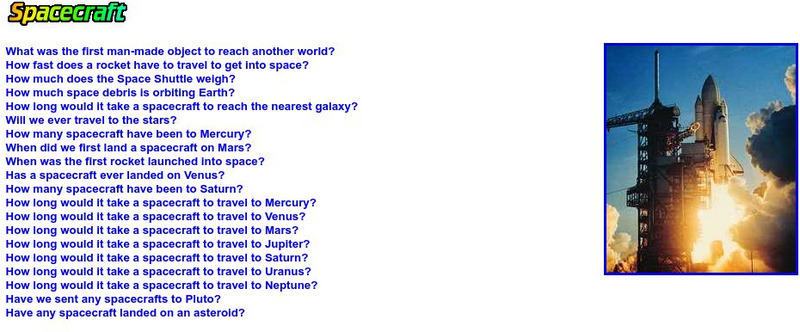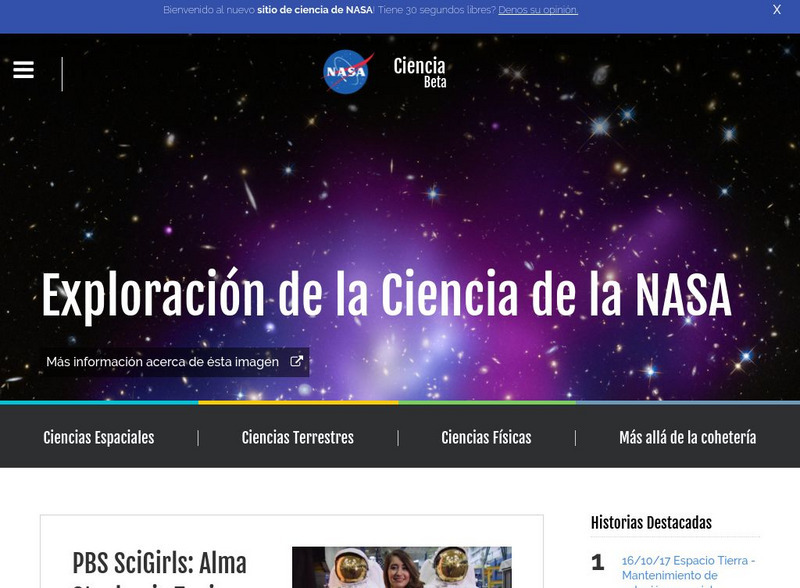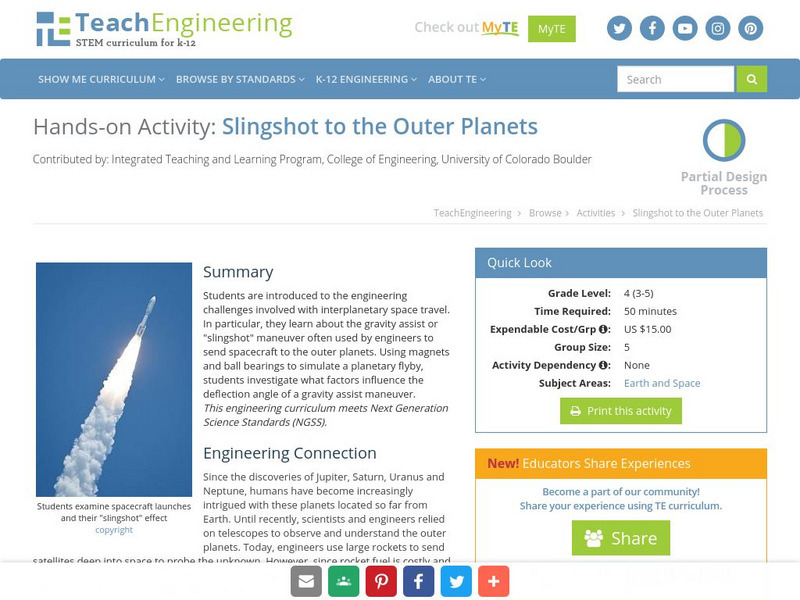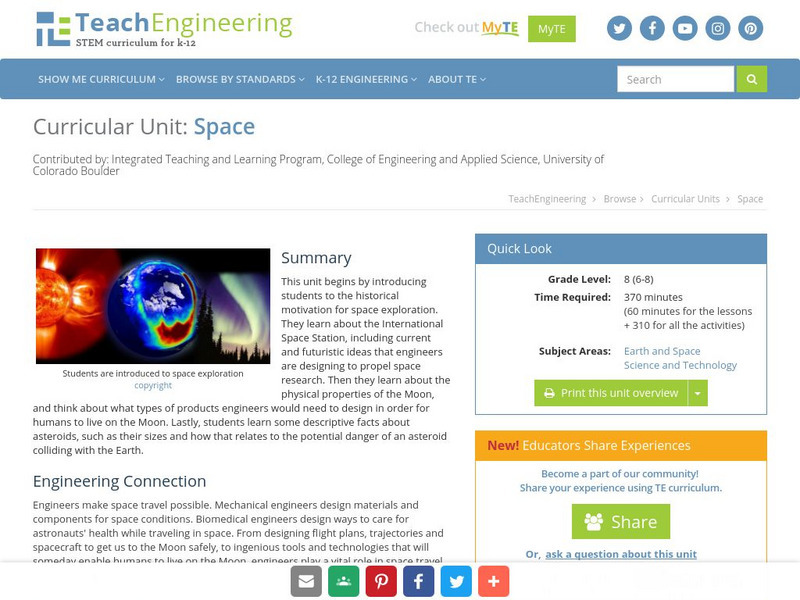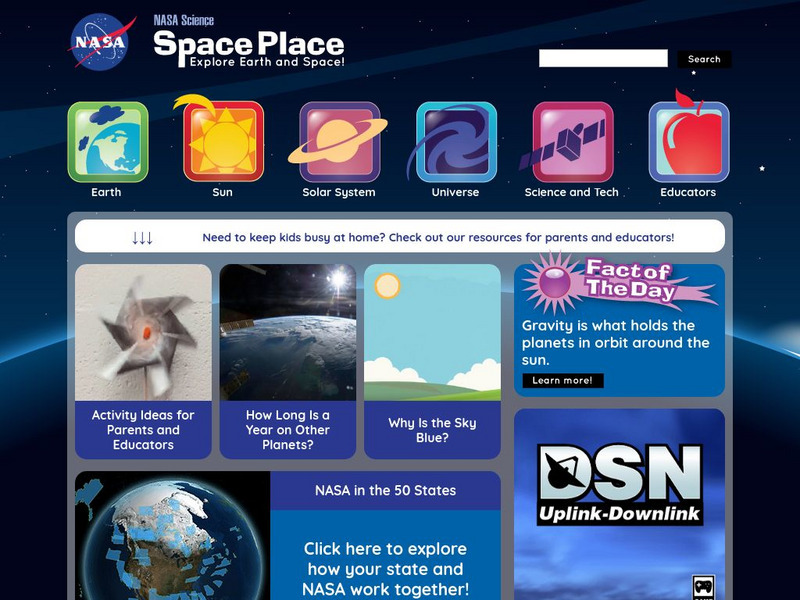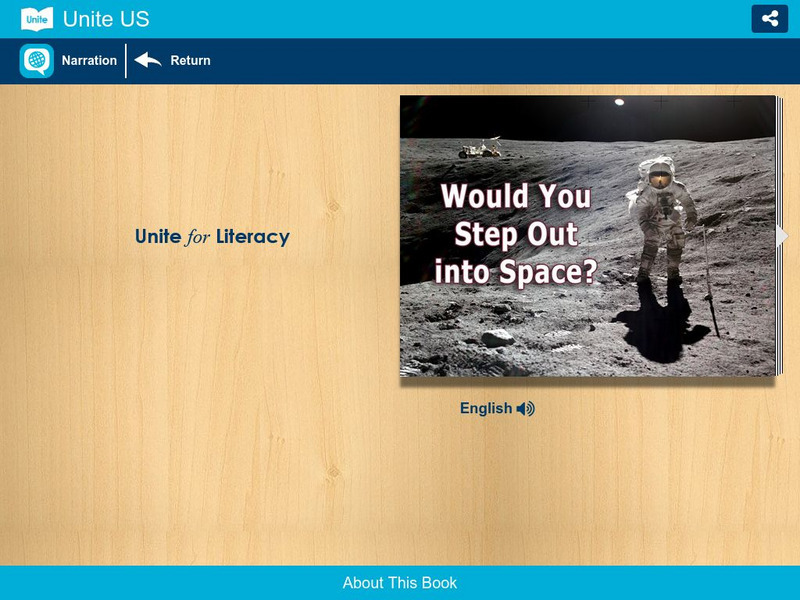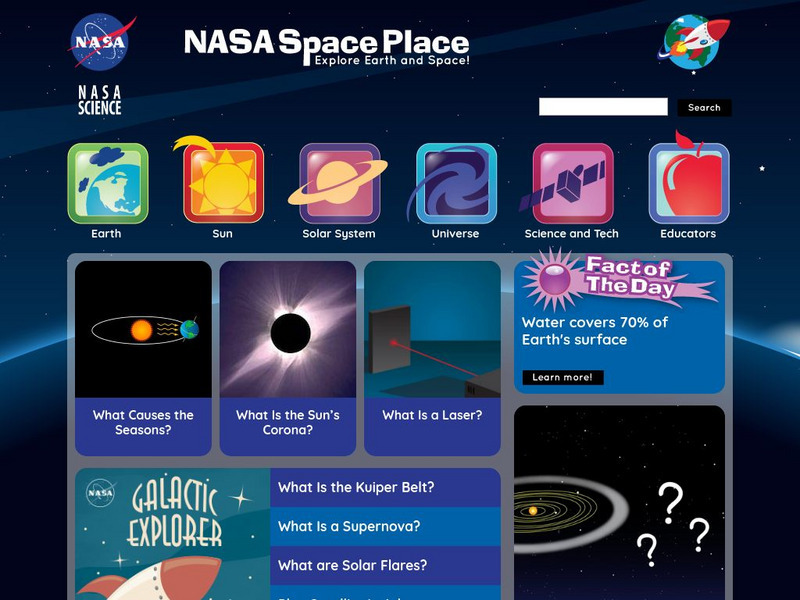Curated OER
Charting The Progress of New Horizons
Students explore the long distances and timescales involved in space travel. They track the progress of the New Horizons spacecraft and access the New Horizons website to discover the distance of the spacecraft from the Sun, and then...
Curated OER
Station Information
Students investigate the International Space Station. They complete a KWL chart, participate in a class discussion, and draw a picture of the International Space Station.
Curated OER
Probes to Other Planets
Sixth graders use a list of robot components and common household items to design and construct a robot spacecraft model suitable for exploring the Saturn System. They present the robots to the class.
Curated OER
Just How Big is this Place?
Students are introduced to the the formula for calculating travel time. They listen to different scenarios relating to long distance travel into space and calculate travel time using the formula.
Curated OER
Toys in Space
Studentsexplore how gravity affects the operation of toys and simple machines. They watch a video and experiment with simple machines.
California Institute of Technology
Cool Cosmos: Ask an Astronomer for Kids! Spacecraft
Cool Cosmos makes it easy to learn more about spacecrafts through an easy to use list of kid's frequently asked questions. Just click on the question to enhance your understanding of this modern technological wonder.
NASA
Nasa: Reaching for the Stars
Find the latest news on research and development underway to use antimatter as a fuel for space vehicles. (April 12, 1999)
NASA
Nasa: Orion: Nasa's New Spacecraft on the Journey to Mars
Learn all about the spacecraft Orion, which took its first flight to space in December 2014. A trip to Mars is planned next. Learn how its design compares to that of the Apollo, what new technology it has, and what has been done to...
NASA
Nasa: 21th Century Explorer: Why Do We Want to Study and Travel to Mars?
This article answers some of the most common questions about Mars: Why is it red? Is there water on Mars? What else have scientists discovered from spacecraft that have landed there? Also, visitors can follow links to learn more about...
NASA
Nasa: La Historia De Hoy: Today's History (Spanish)
Explore the depths of space and science comprehensive information about the meteor showers in 2004, the transit of Venus, virtual reality, and other interesting science history.
TeachEngineering
Teach Engineering: Slingshot to the Outer Planets
Students are introduced to the engineering challenges involved with interplanetary space travel. In particular, they learn about the gravity assist or "slingshot" maneuver often used by engineers to send spacecraft to the outer planets....
TeachEngineering
Teach Engineering: Space
In this unit, students first are introduced to the historical motivation for space exploration. They learn about the International Space Station and are introduced to new and futuristic ideas that space engineers are currently working on...
TeachEngineering
Teach Engineering: Space Travel
Students are introduced to the historical motivation for space exploration. They learn about the International Space Station as an example of space travel innovation and are introduced to new and futuristic ideas that space engineers are...
NASA
Nasa: Star Child: Elementary Astronomy Unit
Learn everything you can about outer space with this interactive astronomy unit. 2 levels of difficulty with modules on the solar system, the universe, other "space stuff" and a glossary of terms. Links for parents and other great website.
NASA
Nasa Human Research Program: 21st Century Explorer
This NASA research program allows students to explore space topics using science, technology, engineering, and mathematics skills. Find twelve themes to investigate through video, song, and animation. Also find links to other NASA projects.
Unite for Literacy
Unite for Literacy: Earth and Sky: Would You Step Out Into Space?
Imagines what it is like to travel to space and what you can see through the window of a spacecraft. Book includes audio narration in 14 additional languages with text in English.
NASA
Nasa: An Educator's Guide to the Engineering Design Process: K 2 [Pdf]
The NASA BEST Activities Guides were designed to teach students the Engineering Design Process. This is one of three guides targeting different grade groups. All follow the same set of activities and teach students about humans' endeavor...
National Women’s History Museum
National Women's History Museum: Mae Jemison
Astronaut Mae Jemison became the first African American woman to travel in space.
University of Wisconsin
The Why Files: High Living
The Why Files have provided an article that explores the health effects of space travel. The site focuses on life on a space station.
PBS
Pbs Teachers: Life's Really Big Questions: Planetary Problem Solving
Explore the possibility of life on planets outside our solar system. Create an extrasolar planet, then make the necessary adaptations for it to be capable of supporting human life.
Orpheus Books
Q Files: Technology: Space Transport
The story of space exploration is told from the first successful rocket built in 1926 to space probes and the International Space Station.
NASA
Nasa: Space Place: Recipe for an Eco Sphere
Finf out about NASA-created self-contained living worlds inside closed glass containers.
TeachEngineering
Teach Engineering: A Roundabout Way to Mars
Students explore orbit transfers and, specifically, Hohmann transfers. They investigate the orbits of Earth and Mars by using cardboard and string. Students learn about the planets' orbits around the sun, and about a transfer orbit from...
TeachEngineering
Teach Engineering: Destination Outer Space
Students acquire a basic understanding of the science and engineering of space travel as well as a brief history of space exploration. They learn about the scientists and engineers who made space travel possible and briefly examine some...



